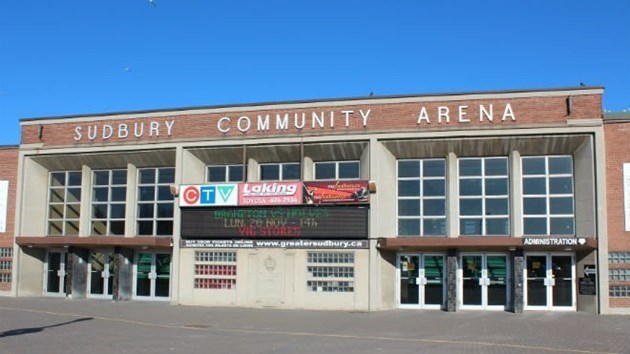The badly outdated Sudbury Arena is another step closer to being replaced. City councillors approved a consultant's report on the arena on March 7, and to proceed with the next steps.
Ron Bidulka of PricewaterhouseCoopers gave council an overview of his report. It says the cost of a new facility would be about $80 million, plus another $20 million if the city has to buy land, build parking or faces environmental concerns.
The centre would include a 5,800-seat arena, and the report outlines criteria for determining the best location: where there is enough parking; where the facility would generate the most economic impact; where the public and private sectors would benefit most, and where the centre would act as a stimulus for the development of an emerging area or the redevelopment of an existing urban area.
The costs of building a new facility could be offset by investment from the private sector, as other cities have done, the report says. Some communities have built downtown -- Guelph built the Sleeman Centre in its downtown rather than on a developer-provided parcel of land in a suburban location.
Others have put their new arenas/event centres where land is cheapest, such as Medicine Hat, which built the Canalta Centre in the suburbs, as did Barrie when they built the Molson Centre.
In Sudbury, businessman Dario Zulich has proposed building on land he and his partners own on The Kingsway.
However, downtown groups have been lobbying hard to keep the rink downtown.
With Tom Davies Square packed with supporters of both sides, councillors eventually agreed to move ahead, with the proviso that they can change their minds at any point along the way.
Bidulka said the Wolves will generate substantial revenue for the arena, but a key point is the size. Rinks that are too large for the market tend to dampen turnout.
“Empty seats breed empty seas; sellouts breed sellouts,” he said.
If tickets are too readily available, it encourages complacency and discourages season tickets. Having the right number of seats “creates demand,” he said. And typically, new arenas lead to a 35-135 per cent increase in attendance for six years after the facility opens.
That translates into 4,300 fans for a typical Wolves game, up from the current 3,600.
Bidulka estimates 78 event days a year at a new facility, 15-25 more than we currently have. That translates into 250,000 “bums in seats” a year. The next loss would be about $660,000 a year.
“In the vast majority of cases, these are municipally financed projects,” he said, when asked whether other cities have privately built rinks.
While other cities have built downtown, which has spurred major development, other communities have built far from downtown and succeeded.
“So those impacts aren't restricted to downtown facilities.” Coun. Deb McIntosh asked why Sudbury's events centre couldn't be as viable as ones in southern Ontario. “Why do they turn a profit and the others do not?” McIntosh asked.
Bidulka said it was a matter of population and geography. “London's market is three times the size of yours,” he said. “From an events perspective, it's on the main route. And the private operator that has been there since Day 1 has done an amazing job.”
While Zulich has proposed a plan for his Kingsway site, CAO Ed Archer said if an arena is built, it will be taxpayers who pay for it.
“There have been no offers for anyone to come and build this for us,” Archer said.
Coun. Bob Kirwan was one of two councillors to vote no. When the process began, he thought the city could get behind Zulich and built the new rink without affecting taxpayers.
But the report said taxes could go up by 2.2 per cent if enough funding isn't found.
“So this isn't what I expected when this process began,” he said.
Councillors approved $200,000 to fund the process and asked for a report before June on a financing plan to minimize the impact on taxes. The goal is to have the site selection process completed before the RFP is issued in early summer.




